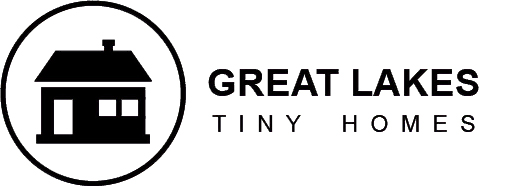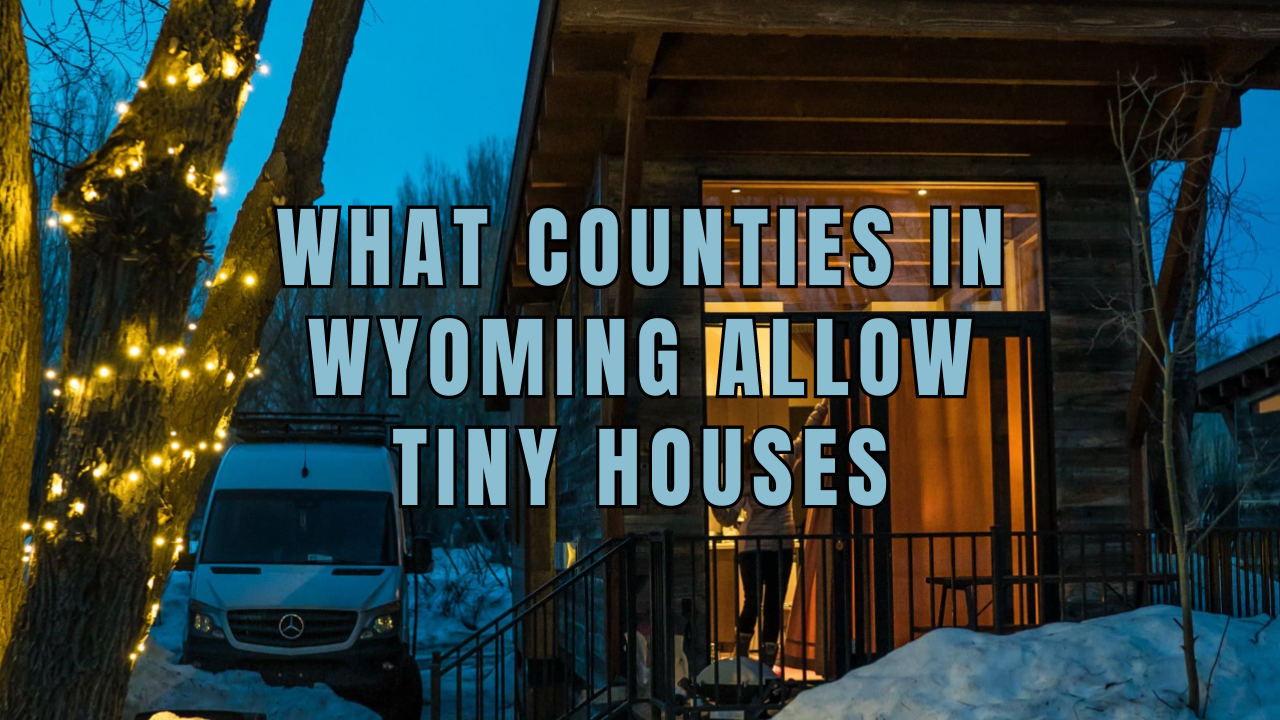West Virginia is becoming a popular destination for tiny house enthusiasts, but navigating the rules and regulations can be daunting research.
In this article, you will explore where to buy a tiny house, which counties in West Virginia allow tiny houses, and the specific rules and regulations to consider before moving.
Whether you are looking to downsize, live sustainably, or embrace a minimalist lifestyle, understanding the legalities of tiny house living in WV is crucial.
West Virginia Tiny House Prices
Determine how much you can afford and what reasonably priced tiny home alternatives are available before embarking on your tiny house quest.
Positive news! We offer a solution that considers all requirements and financial constraints, allowing you to begin constructing your small home. Discover the WV tiny houses for sale!
What Counties in West Virginia Allow Tiny Houses?
Although it is generally allowed to construct a small house in most cities and counties in West Virginia, there is no specific state law addressing this. Before beginning a small home project, comprehend the laws and regulations on tiny houses, as they differ greatly depending on the locality.
Hardy County
The size restrictions for small homes in Hardy County, WV, vary according to the district in which the residences are. Living in an R district presents challenges for tiny homeowners since all homes must be at least 800 square feet.
Jefferson County
West Virginia’s Jefferson County passed a rule focused on backyard ADUs or auxiliary dwelling units. A Zoning and Land Development Ordinance enacted by the county office allows auxiliary housing units up to 1,700 square feet.
Parkersburg County
The proposed zoning overlay zone would permit the development of smaller-than-usual dwellings in a specific region, generally bounded by 16th and Spring streets and Virginia and Laird Avenues.
The buildings have to be on properties that are at least 5,000 square feet and cannot be larger than 1,250 square feet, with a minimum of 250 square feet per occupant. The homes need utilities and solid foundations.
Tiny House Regulations And Rules In West Virginia
In West Virginia, some regional programs and associations encourage the tiny home movement and offer services to individuals considering this way of life. Consult with local authorities for information on particular permits, construction rules, and zoning restrictions. You may browse through the state’s inventory of pre-existing small homes if you want to skip the hassles of creating your own.
Permanent Structure Rules
WV adheres to the International Residential Code (IRC), which governs the building and habitation of small dwellings as permanent constructions. It is noteworthy that constructing a permanent small house may provide difficulties due to state legislation, and local ordinances differ from city to city.
The state’s many local values appear in the intricate patchwork of regional land use regulations and construction requirements that contractors and homeowners must understand.
- According to the IRC, tiny dwellings, not including lofts, must be 400 square feet or smaller.
- Some counties could have laxer rules and permit even lower square footage.
Temporary Structure Rules
Tiny houses on wheels (THOWs) are subject to the same rules as motor homes, mobile homes, and recreational vehicles since they are temporary buildings. Because of this categorization, owners of THOWs are subject to different regulations than those of permanent tiny houses on foundations.
It’s also vital to consider that, with a non-foundation building, the free-moving air beneath the house will impact internal temperature regulation, which is crucial given the climate of West Virginia.
Transitional Structure Rules
West Virginia has imposed minimum requirements for transitional living programs. These requirements include group settings that are under supervision, as well as dispersed housing arrangements. The agencies are responsible for establishing eligibility criteria for individuals and children undergoing transition. Processes and policies should be put in place to assist in finding suitable homes for them in scattered living environments.
Additional Considerations
- Zoning regulations impact the design, location, and usage of small dwellings, highlighting the necessity of regional knowledge.
- Secondary housing units–accessory dwelling units (ADUs) provide full independent living amenities. In West Virginia, they fit within the parameters of Appendix Q of the IRC.
- In WV, living off-grid is typically permissible; nevertheless, municipal zoning rules decide the legality of such arrangements. Those interested in living off the grid should consider investing in solar electricity.
- West Virginia’s water rights laws have been relaxed, allowing for rainwater collection and the construction of ponds on private property. With rare exceptions, the state’s stringent sewage treatment regulations necessitate installing a septic system or connecting to the municipal sewer line.
In West Virginia, Where Can I Build A Tiny House?
Pick a cozy spot for the tiny house. Employ a licensed tiny home builder to help you through the process, handle any paperwork, and guarantee that your home complies with construction regulations.
If done right, building a tiny house doesn’t have to be tough, even though it does need a lot of effort. Typically, tiny residences are in the following areas:
- RV parks
- National Parks and campgrounds
- Tiny house communities
- Private properties
West Virginian Tiny House Communities
Tiny house communities in West Virginia are gaining popularity as people seek a simpler, more sustainable lifestyle. These communities offer a sense of community and values, with the opportunity to live in a smaller, more affordable space. The beautiful natural surroundings of WV provide the perfect backdrop for these tiny home communities.
Shepherd Village
The Shepherd Village of Shepherdstown, West Virginia, takes satisfaction in appreciating the value of a modest lifestyle. A group of active individuals created the town. The neighborhood’s creators want to establish a close-knit community that encourages maintaining an active lifestyle, aging in place, and cherishing solid connections.
Shepherd Village is a living community that welcomes everyone but primarily caters to retirees looking for a simpler lifestyle as they age. The residents of this neighborhood can access community facilities and live in single-family park model houses.
Cnh Tiny House Village
The CnH Tiny House Village near Moundsville, WV, is available for short- and long-term rentals.
Upon arrival, every tiny home has all the usual hotel facilities, such as parking, a bed, a kitchenette, a bathroom with hot water, Wi-Fi, a TV, and an outside grilling space. A microwave, coffee machine, induction burner, and refrigerator are all part of kitchenettes.
Tiny House Builders Near Me
With Great Lakes Tiny Homes offering a range of tiny houses sent anywhere in the country, there’s no need to waste time searching for Virginia small house builders to find your ideal home.
Approved by the RV Industry Association (RVIA), Great Lakes Tiny Homes is a tiny home builder that specializes in adhering to the tightest safety, legal, and construction rules while maintaining the highest production standards.
Do I Need a Certified Builder?
Yes, you do! You could think about doing it yourself, but consider that there are more difficulties and unknowns.
Purchasing a tiny house from a builder approved by the RVIA, like Great Lakes Tiny Homes, ensures the structure follows all relevant rules and legislation.
It gives you more confidence and guarantees the longevity and safety of the products in your house.
Finding a licensed builder makes it easier to get financing and insurance. Furthermore, a tiny home that meets RVIA standards is habitable and safe.
FAQs
Can You Make a Tiny House in West Virginia Your Main Residence?
Yes, without a doubt! Permanent small home dwelling is allowed in West Virginia.
Remember that local laws and ordinances might differ based on where you live. Verify that the tiny home complies with all applicable laws and ordinances, including inspection requirements. You may also speak with the zoning and local government officials.
Working with West Virginia’s certified builders allows you to live a more relaxed and environmentally responsible lifestyle.
In West Virginia, Are Compost Toilets Allowed?
In West Virginia, composting toilets are permitted. While the legislation stipulates that they must comply with NSF Standard 41, it is unclear if certification by NSF Standard 41 is a prerequisite for using a composting toilet.
However, is illegal to use a composting toilet alone in West Virginia. The law requires composting toilets to have an authorized greywater treatment and disposal system. It nearly always signifies septic.
In West Virginia, Is It Legal to Build a Tiny Home in My Backyard?
In West Virginia, the regulations for placing a tiny house on your property will depend on factors such as zoning laws, building codes, and land use restrictions. You may need to obtain a permit and adhere to specific size requirements for the structure.
Some general guidelines to consider when placing a tiny home on your property in WV include:
- Zoning Laws: Check with your local zoning department to determine if tiny homes are allowed on your property. Certain areas may have restrictions on the size, location, and use of tiny houses.
- Building Codes: Make sure tiny homes comply with building codes set by the state and local government. It may include regulations on safety, electrical and plumbing systems, and structural requirements.
- Land Use Restrictions: Some neighborhoods or communities may have covenants or restrictions that dictate the type of structures that can be on the property. Be sure to review any existing land use restrictions to ensure compliance.
- Permitting: You may need to obtain a permit before placing a tiny house on your property. Contact your local building department to inquire about the required permits and the application process.
- Size Requirements: There may be specific size requirements for tiny houses in certain areas. Be sure to confirm the maximum size allowed for your tiny home before beginning construction.
It’s vital to thoroughly research and consult with local authorities to ensure you comply with all regulations before placing a tiny home on your property in West Virginia. Failure to do so could result in fines or legal complications.
Conclusion
In conclusion, tiny homes are a great option for people who want to enjoy the benefits of living small in West Virginia. However, not all counties in the state are tiny home-friendly, and there are some regulations and rules to follow.
Therefore, it is advisable to research and contact the local authorities before choosing a location for your tiny house. By doing so, you ensure the tiny home meets the legal requirements and fits your needs and preferences.





